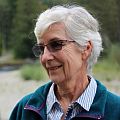FLASHBACK TO 2009: The Water Conservation Calculator, an online tool, was unveiled by the BC provincial government at a national conference. What was the goal in developing the tool? Align provincial grant programs with water conservation targets in “Living Water Smart, British Columbia’s Water Plan” to achieve water supply resiliency province-wide!

“Smaller communities often cannot allocate resources to traditional infrastructure projects or cannot budget for the development of water conservation and efficiency plans by service providers. The purpose of the Water Conservation Calculator is to illustrate how specific conservation measures yield both fiscal and physical water consumption savings. Water purveyors can use the tool to assist in presenting their conservation case to council and other decision makers,” stated Lisa Wright, Ministry of Community & Rural Development.










